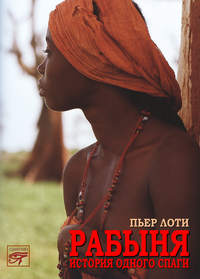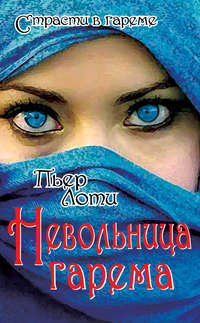
Полная версия
Madame Chrysantheme - Complete


Titel: Madame Chrysantheme — Complete
von Augustus J. Thebaud, Charles Kingsley, Henry James, Thomas Hardy, Kate Douglas Smith Wiggin, Joseph Butler, John D. Barry, William Allan Neilson, Henry Rider Haggard, Rudolf Erich Raspe, Paul Heyse, Carl Russell Fish, Tom Taylor, Margaret Pedler, Homer, John Kendrick Bangs, John Burroughs, Juanita Helm Floyd, Maurice Liber, Anthony Trollope, William Morris, Mark Twain, Charles Dudley Warner, Thomas Hobbes, Winfried Honig, Albrecht Dürer, Militia of Mercy . Gift Book Committee, Ella Wheeler Wilcox, Andrew Lang, Katharine Pyle, Sir Samuel White Baker, Frederic William Moorman, the Younger Pliny, Samuel Butler, William Dean Howells, Harold MacGrath, Joseph Crosby Lincoln, Ralph Connor, Various, Oliver Wendell Holmes, Abraham Lincoln, John Galsworthy, Ian Maclaren, Charlotte Mary Yonge, Sir Owen Morgan Edwards, Robert J. C. Stead, Harold Bell Wright, Eleanor H. Porter, Richard Le Gallienne, Ann Ward Radcliffe, Mark Rutherford, John Bunyan, Artemus Ward, John Hanning Speke, James Fenimore Cooper, Edmund Burke, Sir Arthur Conan Doyle, Francis Bacon, Gisela Engel, Edward Samuel Corwin, Washington Irving, Rafael Sabatini, Emma Lazarus, Bishop of Hippo Saint Augustine, Christian Friedrich Hebbel, Adam Smith, Upton Sinclair, Michael Earls, John Hargrave, Charles Hose, William McDougall, Albert Ernest Jenks, marquis de Jean-François-Albert du Pouget Nadaillac, Robert Sewell, 16th cent. Fernão Nunes, 16th cent. Domingos Paes, Inez Haynes Gillmore, Charles Warren Stoddard, Will Irwin, Vivia Hemphill, J. Hampton Moore, Philip Gibbs, Sir Richard Steele, Joseph Addison, L. Mühlbach, Leroy Scott, Mrs. Henry Wood, Ottilie A. Liljencrantz, Algernon Charles Swinburne, Thomas Bulfinch, Bernard Shaw, Confucius, Samuel Pepys, Luís Vaz de Camões, Walter Bigges, Theodore Roosevelt, Émile Gaboriau, fl. 1580. Edward Hayes, Eugène Sue, Earl of Philip Dormer Stanhope Chesterfield, Robert Smythe Hichens, Bliss Perry, Isabella L. Bird, Stewart Edward White, Roald Amundsen, Viscount James Bryce Bryce, Francis Hopkinson Smith, Annie Hamilton Donnell, Mary Wollstonecraft, Jean-Henri Fabre, Marcus Andrew Hislop Clarke, Marietta Holley, W. E. Gladstone, Ellis Parker Butler, Booth Tarkington, G. A. Henty, E. L. Voynich, Anonymous, Francis Leggett, Charles Alfred Tyrrell, Josef Cohen, Jules Verne, Zane Grey, Mary Baker Eddy, Albert Bigelow Paine, Mary Roberts Rinehart, Ouida, Joseph Furphy, Harry Leon Wilson, Sir Hugh Walpole, Edgar Rice Burroughs, Fay Inchfawn, E. Pauline Johnson, Abraham Merritt, James Sheridan Knowles, Herbert George Jenkins, Richard Hakluyt, Georges Victor Legros, J. M. Barrie, Dana Gatlin, Padraic Colum, Lucy Fitch Perkins, Heinrich Heine, Louisa May Alcott, John Ceiriog Hughes, Henry Van Dyke, Laurence Housman, Ludwig van Beethoven, Stephen Leacock, Watkin Tench, E. Nesbit, Edward William Bok, graf Leo Tolstoy, Giacomo Casanova, Oliver Goldsmith, Raffaello Carboni, Orville O. Hiestand, Abraham Cowley, Louis Antoine Fauvelet de Bourrienne, Louis Constant Wairy, Michel de Montaigne, Edward Salisbury Field, Guy de Maupassant, Doris Stevens, Hamilton Brock Fuller, Anna Chapin Ray, Wilkie Collins, Robert Tressell, Victoria Cross, William Guthrie, Alexandre Dumas père, Mary Jane Holmes, Charles Darwin, J. Hartley Manners, Sir James George Frazer, Sir Adolphus William Ward, James Hamilton, Theodore Dreiser, Kathleen Thompson Norris, William Henry Knight, Arnold Bennett, Cosmo Hamilton, Voltaire, Molière, Winston Churchill, Alexander Mackenzie, Joseph A. Altsheler, Maria Edgeworth, Florence L. Barclay, Mary E. Bamford, Frank Harris, Harold Bindloss, Alfred Henry Lewis, Charles Reade, United States. Central Intelligence Agency, Charles Ives, Conrad Ferdinand Meyer, Marion Polk Angellotti, Steele Rudd, Louis Stone, J. C. F. Johnson, Pierre Loti, Henry Martyn Cist, Howard Pyle, Saki, Franz Liszt, H. G. Wells, Dante Gabriel Rossetti, Ben Jonson, William Cowper, Lord Dufferin, Dion Boucicault, Ethel C. Pedley, Robert Alexander Wason, Gertrude Franklin Horn Atherton, O. Henry, Rufus Phillips Williams, Friedrich Heinrich Karl Freiherr de La Motte-Fouqué, Ambrose Bierce, Francis Parkman, Gene Stratton-Porter, Addison B. Poland, John H. Haaren, Giovanni Boccaccio, Henry Handel Richardson, Oliver T. Osborne, Victor [pseud.] Appleton, Nikolai Vasilievich Gogol, Thomas Paine, Maria Thompson Daviess, Gilbert Parker, Lodovico Ariosto, Jean-Jacques Rousseau, Ethel Dench Puffer Howes, Walter De la Mare, P. G. Wodehouse, Van Tassel Sutphen, Esaias Tegnér, Earl of Beaconsfield Benjamin Disraeli, H. E. Marshall, Edna St. Vincent Millay, James Smith, Horace Smith, Henry Edward Krehbiel, Sir Charles Lyell, John S. C. Abbott, Georgina Pell Curtis, Logan Marshall, G. P. R. James, Bram Stoker, John Buchan, Maksim Gorky, Mabel Thorne, Paul Thorne, Henry Kingsley, Mrs. Inchbald, J. Cuthbert Hadden, James Lane Allen, Emma Dorothy Eliza Nevitte Southworth, Lucius Annaeus Seneca, L. M. Montgomery, R. H. Gronow, of Youghal the younger Joseph Fisher, Benedictus de Spinoza, Henry Seton Merriman, J. H. Patterson, Clinton W. Gilbert, Evelyn Blantyre Simpson, F. Marion Crawford, Louis Becke, K. Langloh Parker, Gotthold Ephraim Lessing, Frederick Lawton, Marie Corelli, Frederick Jackson Turner, Lord Frederick Spencer Hamilton, William John Locke, James Elroy Flecker, Richard Wagner, Johann David Wyss, King of France consort of Henry IV Queen Marguerite, Jean François Paul de Gondi de Retz, marquise de Françoise-Athénaïs de Rochechouart de Mortemart Montespan, duchesse d' Charlotte-Elisabeth Orleans, duc de Louis de Rouvroy Saint-Simon, princesse de Marie Thérèse Louise de Savoie-Carignan Lamballe, Mme. Du Hausset, Jeanne Louise Henriette Campan, Lewis Goldsmith, Georges Ohnet, Anatole France, Gustave Droz, Jules Claretie, marquis de Philippe Massa, André Theuriet, Alfred de Musset, Octave Feuillet, Alfred de Vigny, Ludovic Halévy, François Coppée, Paul Bourget, Th. Bentzon, René Bazin, Alphonse Daudet, Charles de Bernard, Hector Malot
ISBN 978-3-7429-3854-1
Alle Rechte vorbehalten.
Es ist ohne vorherige schriftliche Erlaubnis nicht gestattet, dieses Werk im Ganzen oder in Teilen zu vervielfältigen oder zu veröffentlichen.
MADAME CHRYSANTHEME
By Pierre Loti
With a Preface by ALBERT SOREL, of the French Academy
Contents
PIERRE LOTI DEDICATION INTRODUCTION MME. CHRYSANTHEME
BOOK 1. CHAPTER I. THE MYSTERIOUS LAND CHAPTER II. STRANGE SCENES CHAPTER III. THE GARDEN OF FLOWERS CHAPTER IV. CHOOSING A BRIDE CHAPTER V. A FANTASTIC MARRIAGE CHAPTER VI. MY NEW MENAGE CHAPTER VII. THE LADIES OF THE FANS CHAPTER VIII. THE NECESSARY VEIL CHAPTER IX. MY PLAYTHING CHAPTER X. NOCTURNAL TERRORS CHAPTER XI. A GAME OF ARCHERY BOOK 2. CHAPTER XII. HAPPY FAMILIES! CHAPTER XIII. OUR "VERY TALL FRIEND" CHAPTER XIV. OUR PIOUS HOSTS CHAPTER XV. CHAPTER XVI. SLEEPING JAPAN CHAPTER XVII. THE SONG OF THE CICALA CHAPTER XVIII. MY FRIEND AND MY DOLL CHAPTER XIX. MY JAPANESE RELATIVES CHAPTER XX. A DEAD FAIRY CHAPTER XXI. ANCIENT TOMBS CHAPTER XXII. DAINTY DISHES FOR A DOLL CHAPTER XXIII. A FANTASTIC FUNERAL CHAPTER XXIV. SOCIABILITY CHAPTER XXV. UNWELCOME GUESTS CHAPTER XXVI. A QUIET SMOKE CHAPTER XXVII. THE PRAYERFUL MADAME PRUNE CHAPTER XXVIII. A DOLL'S CORRESPONDENCE CHAPTER XXIX. SUDDEN SHOWERS CHAPTER XXX. A LITTLE DOMESTIC DIFFICULTY CHAPTER XXXI. BUTTERFLIES AND BEETLES CHAPTER XXXII. STRANGE YEARNINGS CHAPTER XXXIII. A GENEROUS HUSBAND BOOK 3. CHAPTER XXXIV. THE FEAST OF THE TEMPLE CHAPTER XXXV. THROUGH A MICROSCOPE CHAPTER XXXVI. MY NAUGHTY DOLL CHAPTER XXXVII. COMPLICATIONS CHAPTER XXXVIII. THE HEIGHT OF SOCIABILITY! CHAPTER XXXIX. A LADY OF JAPAN CHAPTER XL. OUR FRIENDS THE BONZES CHAPTER XLI. AN UNEXPECTED CALL CHAPTER XLII. AN ORIENTAL VISION CHAPTER XLIII. THE CATS AND THE DOLLS CHAPTER XLIV. TENDER MINISTRATIONS CHAPTER XLV. TWO FAIR ARISTOCRATS CHAPTER XLVI. GRAVE SUSPICIONS BOOK 4. CHAPTER XLVII. A MIDNIGHT ALARM CHAPTER XLVIII. UNUSUAL HOSPITALITY CHAPTER XLIX. RUMORS OF DEPARTURE CHAPTER L. A DOLLS' DUET CHAPTER LI. THE LAST DAY CHAPTER LII. "FAREWELL!" CHAPTER LIII. OFF FOR CHINA CHAPTER LIV. A FADING PICTURE CHAPTER LV. A WITHERED LOTUS-FLOWER
PIERRE LOTI
LOUIS-MARIE-JULIEN VIAUD, "Pierre Loti," was born in Rochefort, of an old French-Protestant family, January 14, 1850. He was connected with the. French Navy from 1867 to 1900, and is now a retired officer with full captain's rank. Although of a most energetic character and a veteran of various campaigns—Japan, Tonkin, Senegal, China (1900)—M. Viaud was so timid as a young midshipman that his comrades named him "Loti," a small Indian flower which seems ever discreetly to hide itself. This is, perhaps, a pleasantry, as elsewhere there is a much more romantic explanation of the word. Suffice it to say that Pierre Loti has been always the nom de plume of M. Viaud.
Lod has no immediate literary ancestor and no pupil worthy of the name. He indulges in a dainty pessimism and is most of all an impressionist, not of the vogue of Zola—although he can be, on occasion, as brutally plain as he—but more in the manner of Victor Hugo, his predecessor, or Alphonse Daudet, his lifelong friend. In Loti's works, however, pessimism is softened to a musical melancholy; the style is direct; the vocabulary exquisite; the moral situations familiar; the characters not complex. In short, his place is unique, apart from the normal lines of novelistic development.
The vein of Loti is not absolutely new, but is certainly novel. In him it first revealed itself in a receptive sympathy for the rare flood of experiences that his naval life brought on him, experiences which had not fallen to the lot of Bernardin de St. Pierre or Chateaubriand, both of whom he resembles. But neither of those writers possessed Loti's delicate sensitiveness to exotic nature as it is reflected in the foreign mind and heart. Strange but real worlds he has conjured up for us in most of his works and with means that are, as with all great artists, extremely simple. He may be compared to Kipling and to Stevenson: to Kipling, because he has done for the French seaman something that the Englishman has done for "Tommy Atkins," although their methods are often more opposed than similar; like Stevenson, he has gone searching for romance in the ends of the earth; like Stevenson, too, he has put into all of his works a style that is never less than dominant and often irresistible. Charm, indeed, is the one fine quality that all his critics, whether friendly or not, acknowledge, and it is one well able to cover, if need be, a multitude of literary sins.
Pierre Loti was elected a member of the French Academy in 1891, succeeding to the chair of Octave Feuillet. Some of his writings are: 'Aziyade,' written in 1879; the scene is laid in Constantinople. This was followed by 'Rarahu,' a Polynesian idyl (1880; again published under the title Le Mariage de Loti, 1882). 'Roman d'un Spahi (1881) deals with Algiers. Taton-gaye is a true 'bete-humaine', sunk in moral slumber or quivering with ferocious joys. It is in this book that Loti has eclipsed Zola. One of his masterpieces is 'Mon Freye Yves' (ocean and Brittany), together with 'Pecheur d'Islande' (1886); both translated into German by Elizabeth, Queen of Roumania (Carmen Sylva). In 1884 was published 'Les trois Dames de la Kasbah,' relating also to Algiers, and then came 'Madame Chrysantheme' (1887), crowned by the Academy. 'Japoneries d'automne' (1889), Japanese scenes; then 'Au Maroc' (Morocco; 1890). Partly autobiographical are 'Le Roman d'un Enfant' (1890) and 'Le Livre de la Pitie et de la Mort' (1891). Then followed 'Fantomes d'Orient (1892), L'Exilee (1893), Le Desert (Syria; 1895), Jerusalem, La Galilee (Palestine; 1895), Pages choisies (1896), Ramuntcho (1897), Reflets sur la Sombre Route' (1898), and finally 'Derniers Jours de Pekin' (1903). Many exquisite pages are to be found in Loti's work. His composition is now and then somewhat disconnected; the impressions are vague, almost illusory, and the mirage is a little obscure, but the intense and abiding charm of Nature remains. Loti has not again reached the level of Madame Chrysantheme, and English critics at least will have to suspend their judgment for a while. In any event, he has given to the world many great books, and is shrined with the Forty "Immortals."
DEDICATION
To Madame la Duchesse de Richelieu MADAME LA DUCHESSE,
Permit me to beg your acceptance of this work, as a respectful tribute of my friendship.
I feel some hesitation in offering it, for its theme can not be deemed altogether correct; but I have endeavored to make its expression, at least, in harmony with good taste, and I trust that my endeavors have been successful.
This record is the journal of a summer of my life, in which I have changed nothing, not even the dates, thinking that in our efforts to arrange matters we succeed often only in disarranging them. Although the most important role may appear to devolve on Madame Chrysantheme, it is very certain that the three principal points of interest are myself, Japan, and the effect produced on me by that country.
Do you recollect a certain photograph—rather absurd, I must admit—representing that great fellow Yves, a Japanese girl, and myself, grouped as we were posed by a Nagasaki artist? You smiled when I assured you that the carefully attired little damsel placed between us had been one of our neighbors. Kindly receive my book with the same indulgent smile, without seeking therein a meaning either good or bad, in the same spirit in which you would receive some quaint bit of pottery, some grotesquely carved ivory idol, or some fantastic trifle brought to you from this singular fatherland of all fantasy.
INTRODUCTION
We were at sea, about two o'clock in the morning, on a fine night, under a starry sky.
Yves stood beside me on the bridge, and we talked of the country, unknown to both, to which destiny was now carrying us. As we were to cast anchor the next day, we enjoyed our anticipations, and made a thousand plans.
"For myself," I said, "I shall marry at once."
"Ah!" said Yves, with the indifferent air of one whom nothing can surprise.
"Yes—I shall choose a little, creamy-skinned woman with black hair and cat's eyes. She must be pretty and not much bigger than a doll. You shall have a room in our house. It will be a little paper house, in a green garden, deeply shaded. We shall live among flowers, everything around us shall blossom, and each morning our dwelling shall be filled with nosegays—nosegays such as you have never dreamed of."
Yves now began to take an interest in these plans for my future household; indeed, he would have listened with as much confidence if I had expressed the intention of taking temporary vows in some monastery of this new country, or of marrying some island queen and shutting myself up with her in a house built of jade, in the middle of an enchanted lake.
I had quite made up my mind to carry out the scheme I had unfolded to him. Yes, led on by ennui and solitude, I had gradually arrived at dreaming of and looking forward to such a marriage. And then, above all, to live for awhile on land, in some shady nook, amid trees and flowers! How tempting it sounded after the long months we had been wasting at the Pescadores (hot and arid islands, devoid of freshness, woods, or streamlets, full of faint odors of China and of death).
We had made great way in latitude since our vessel had quitted that Chinese furnace, and the constellations in the sky had undergone a series of rapid changes; the Southern Cross had disappeared at the same time as the other austral stars; and the Great Bear, rising on the horizon, was almost on as high a level as it is in the sky above France. The evening breeze soothed and revived us, bringing back to us the memory of our summer-night watches on the coast of Brittany.
What a distance we were, however, from those familiar coasts! What a tremendous distance!
MME. CHRYSANTHEME
BOOK 1.
CHAPTER I. THE MYSTERIOUS LAND
At dawn we beheld Japan.
Precisely at the foretold moment the mysterious land arose before us, afar off, like a black dot in the vast sea, which for so many days had been but a blank space.
At first we saw nothing by the rays of the rising sun but a series of tiny pink-tipped heights (the Fukai Islands). Soon, however, appeared all along the horizon, like a misty veil over the waters, Japan itself; and little by little, out of the dense shadow, arose the sharp, opaque outlines of the Nagasaki mountains.
The wind was dead against us, and the strong breeze, which steadily increased, seemed as if the country were blowing with all its might, in a vain effort to drive us away from its shores. The sea, the rigging, the vessel itself, all vibrated and quivered as if with emotion.
CHAPTER II. STRANGE SCENES
By three o'clock in the afternoon all these far-off objects were close to us, so close that they overshadowed us with their rocky masses and deep green thickets.







